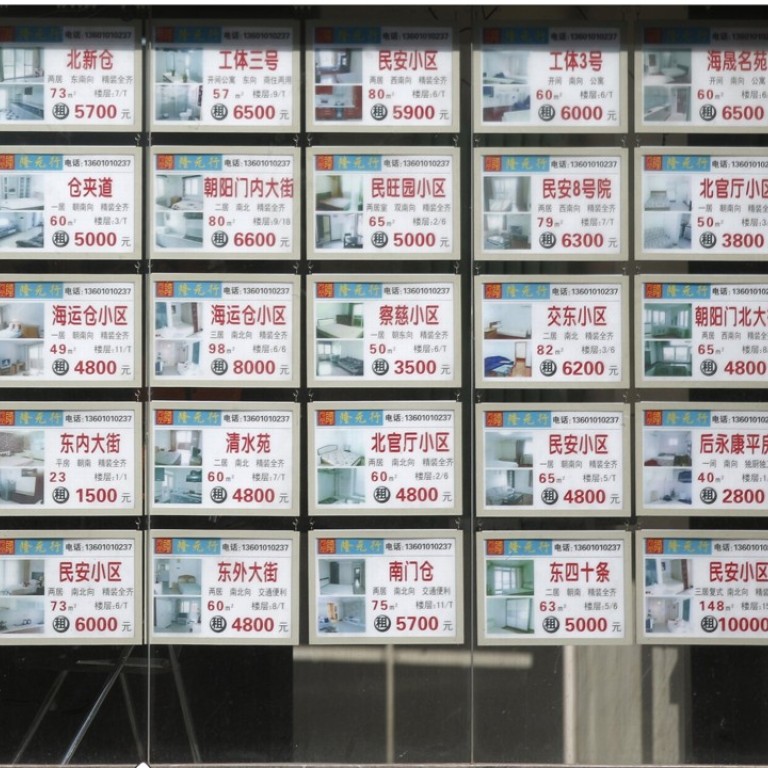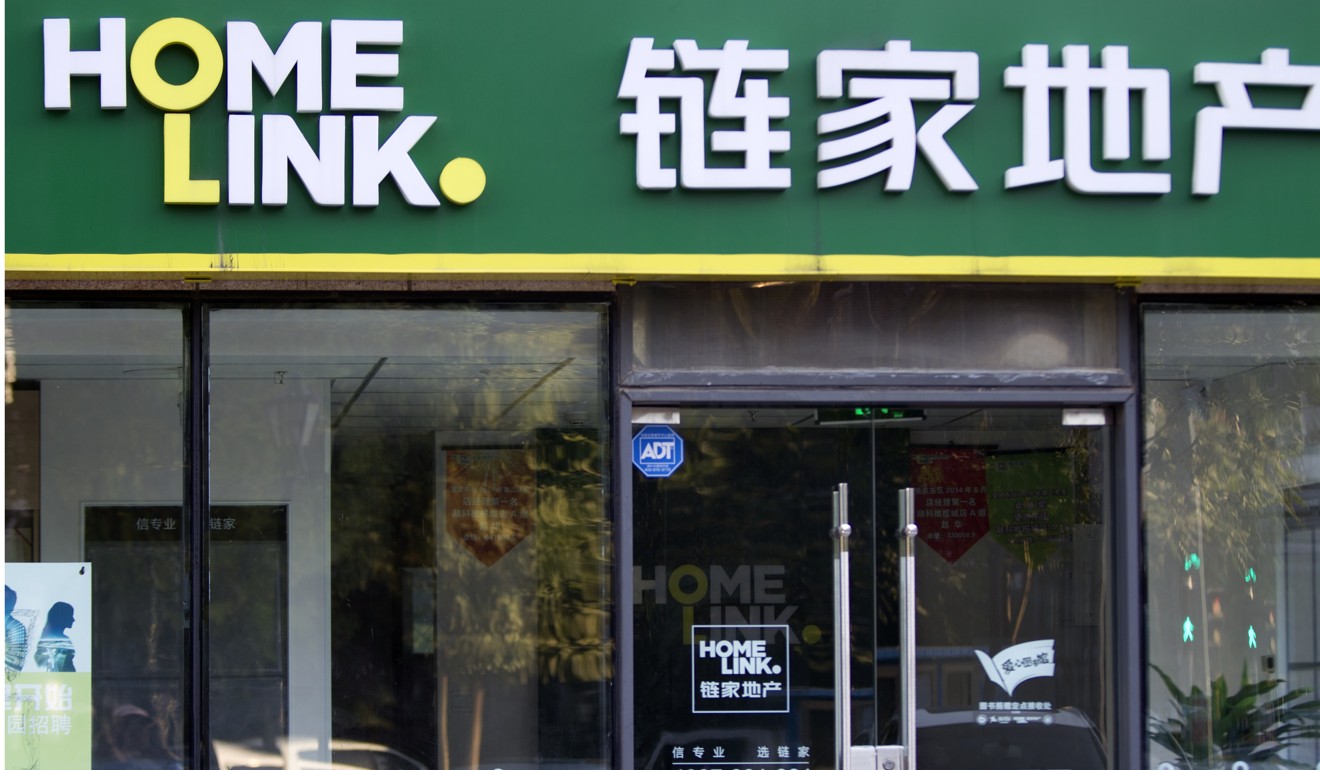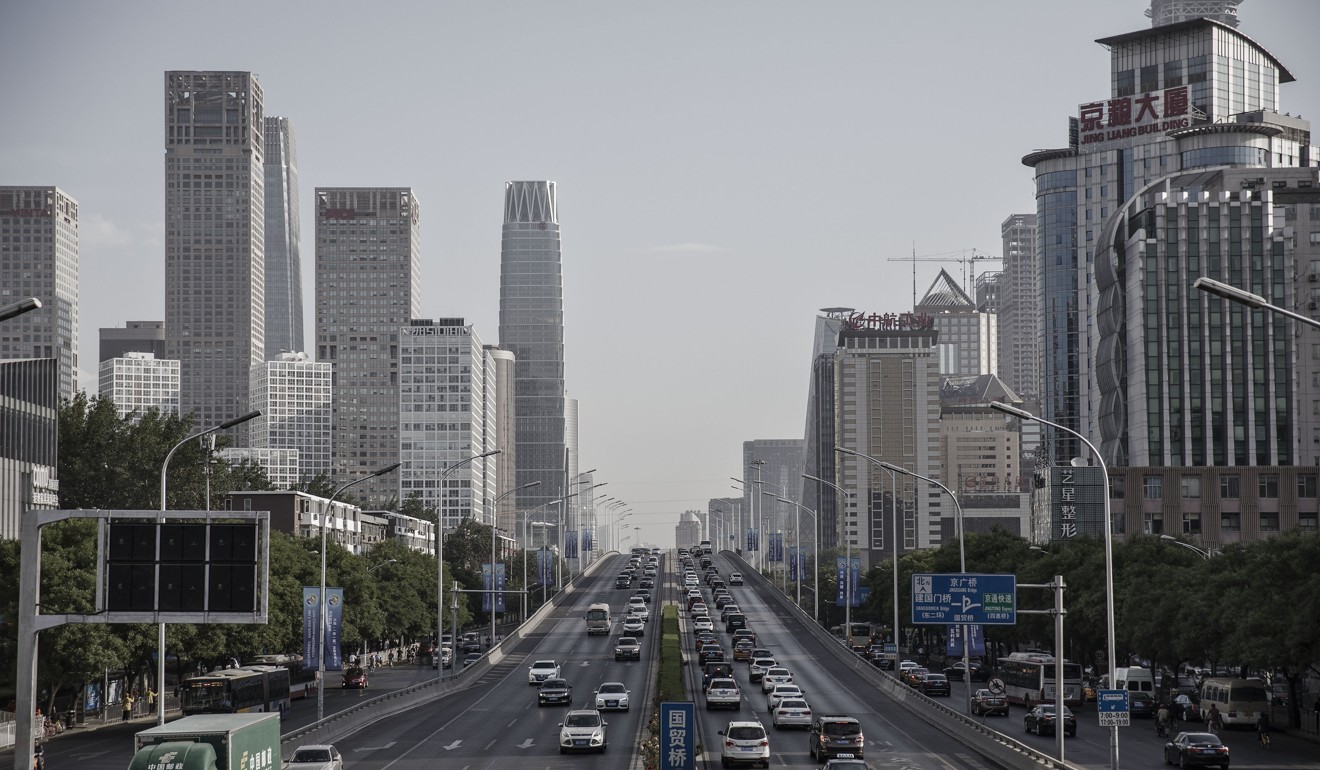
Will China’s rental home drive to quash speculation fuel another property bubble?
State-owned banks have provided a combined US$206.7b of credit to developers for their rental home developments
China’s developers, apartment operators, banks and securities exchanges have dived into the country’s rental home market with zest since last October, in response to Chinese President Xi Jinping’s new housing model of developing the rental market to quash speculation.
But their unanimous enthusiasm has now raised fears of an emerging bubble in the leasing sector, as the market could churn out more rental units than the underlying demand.
“Not all cities are suitable for developing a rental market. Actually, massive residential leasing markets are promising in only three cities: Beijing, Shanghai and Shenzhen,” said Yang Xianling, director of Homelink Academy, one of the early champions of rental market in China who has quietly reversed his stance in the past few months to warn of looming risks.
Yang’s previous optimism of potential growth was calculated from the very low base of China’s existing leasing market, which accounted for only 6 per cent of the overall property market (including new flat and secondary markets) in 2016. His academy, controlled by China’s largest property agent, had predicted that the mainland’s rental market would follow in the footsteps of developed countries to account for 15 per cent of the market – worth 3 trillion yuan – by 2025.
Not all cities are suitable for developing rental market
Yang said it was inevitable for rents to rise in tandem with the society’s disposable income, and the rental yield could increase from the current disappointing level of just over 1 per cent in first-tier cities, to a reasonable level.
But the development over the past year had unsettled him, he said.
Developers and flat operators have rushed to unveil their rental housing development plans, including some which were previously uninterested in the sector.
Country Garden, which focuses on residential flats for sales, said in December that it was targeting to offer one million rental flats in three years, or half of the existing two million rental homes in the country.

Out of China’s top 15 developers by sales, 10 have tabled rental housing plans, according to a tally by the Post.
“In the past year, I have met executives from all top 20 developers, where almost all said they were intending to develop their rental business. A strikingly common problem is none have found a profitable model,” said Quan Li, founder of Fangdongdong, a training and consultancy firm for the rental sector.
A strikingly common problem is none have found a profitable model
What’s more, developers’ ambitions are backed by banks, local governments and securities exchanges, eager to show their support for President Xi’s initiative.
State-owned banks such as China Construction Bank (CCB), Industrial and Commercial Bank of China and Bank of Communications have provided a combined 1.3 trillion yuan (US$206.7 billion) of credit to developers for their rental home developments. CCB and Citic Bank agreed to lend at least 50 billion yuan to Country Garden for its rental home plan.
Similarly, local governments have generously offered land for rental projects. Beijing said it planned to build 500,000 rental homes, or one-third of total home supply in the next five years. Shanghai has promised to develop 700,000 units, accounting for over 40 per cent of total home supply through 2020. Shenzhen told developers that at least 20 per cent of their land acquired through public auctions must be set aside for rental homes.
Securities exchanges have given the green light for the sale of rental project-backed securities, approving sales plans worth 47.9 billion yuan, including Country Garden’s 10 billion yuan issuance, since last October. In contrast, the exchanges have only approved two developers’ bond sales totalling 5.5 billion yuan so far this year.

Tin Sun, head of North China research at CBRE, said the “incentive” problem needed to be solved before rental home construction can gain momentum.
“Rental yield is just too low. To justify investment, developers need to acquire land at much lower costs,” he said.
Another worry is product mismatch.
In the first-tier cities, developers are reluctant to build rental homes on land sites they owned, preferring to lease buildings en bloc, have them renovated and then sub-lease the units.
To maximise returns, most of them have also targeted the high-end market, leasing out the flats with an at least 20 per cent premium in rent to those let by individual landlords.
But the biggest demand for rental units come from migrants and college graduates who are price sensitive and usually have to settle with substandard shelters.
In the tier three and below cities, where developers are more willing to develop rental homes on land they owned, there is already a higher vacancy ratio in the market. Along with relatively lower home prices, users would rather buy their rent homes.

